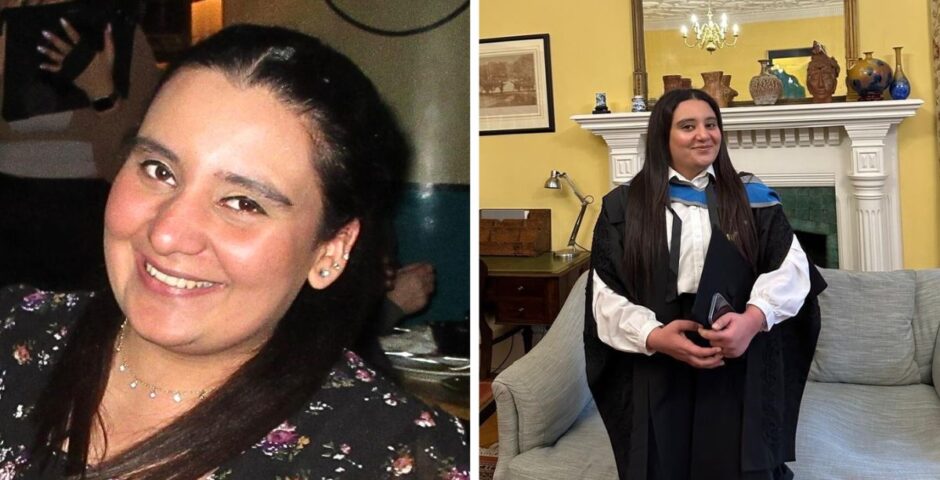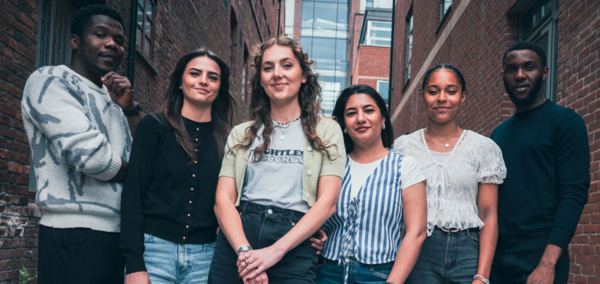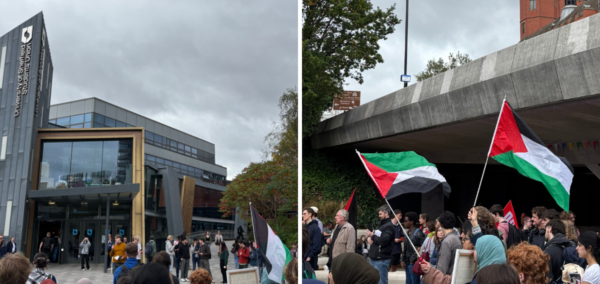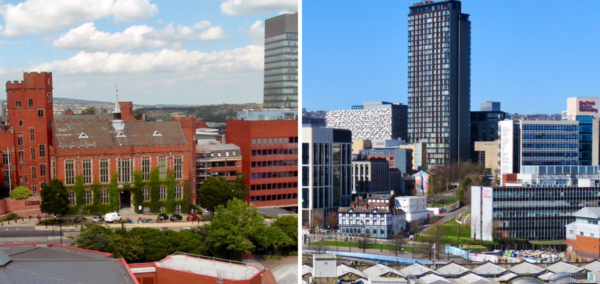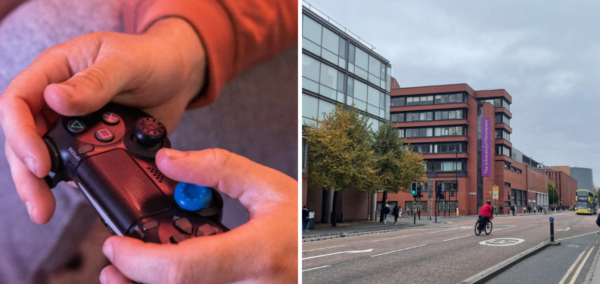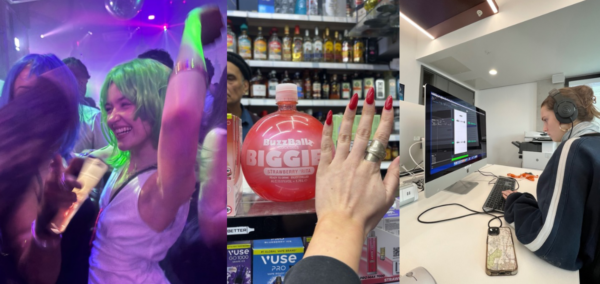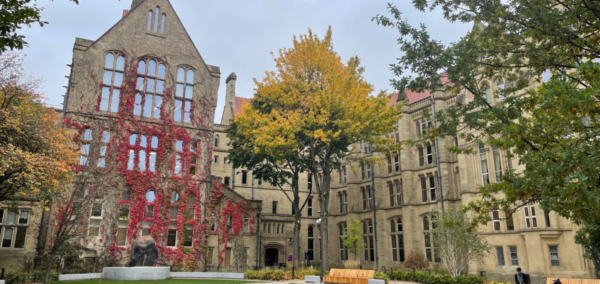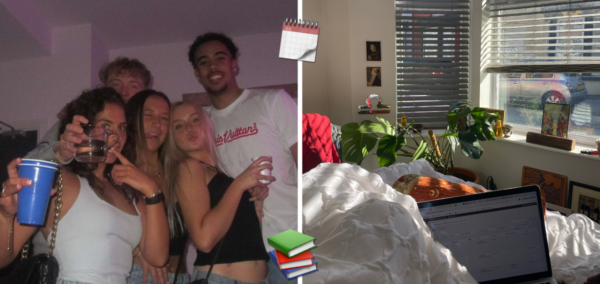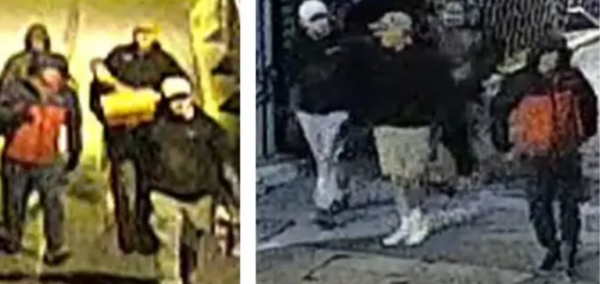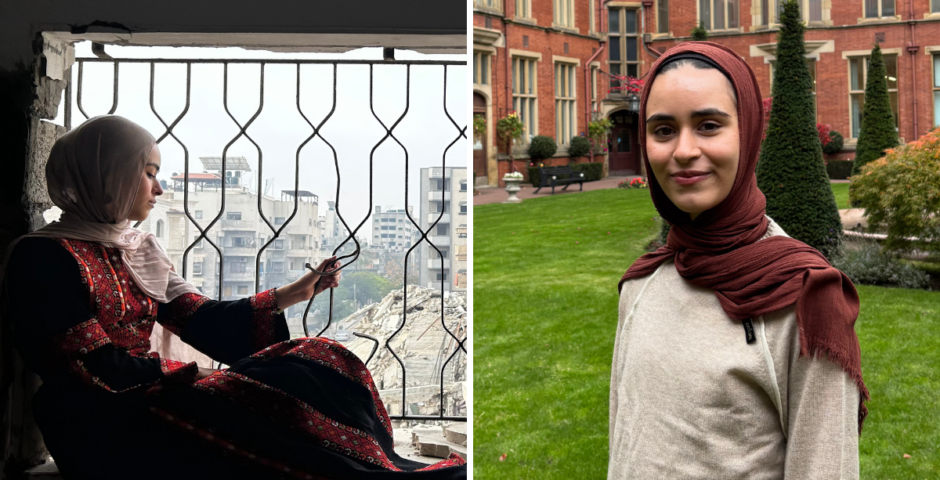
‘Every Gazan has a dream’: How hope and ambition led one student from Gaza to Sheffield
Yara Shawa is now a postgraduate law student at the university
“It is hard to dream in Gaza,” Yara Shawa says as we walk into the vast atrium of The Wave, the University of Sheffield’s social sciences building. “We have been living in instability for so long – but now here I am going to lectures, in a place I’ve been dreaming about, and finally doing something I love.”
Last month, the 24-year-old made a treacherous day-long bus journey from Gaza City to Jordan, before flying from there to London. She was among the first to be evacuated of the Gaza40 – a group of UK university offer holders stuck in Gaza, after the destruction of the city’s only biometric centre left them unable to fulfil visa requirements.
Now in Sheffield, Yara is pursuing a Master of Laws (LLM) in international law and global justice through the University of Sheffield’s Gaza-Palestine Scholarship – at last fulfilling her dream of resuming her studies.
In 2023, she received a law degree from Gaza’s Al-Azhar University. However, efforts to register for a law license were halted in October when the Israel-Gaza conflict began. She tells The Sheffield Tab that her dreams to revisit and work in human rights law were rejuvenated by the prospect of the scholarship.

Yara’s dreams of working in human rights law were rejuvenated by the prospect of the scholarship
“Courts are under rubble and universities are under rubble. So everything has stopped in Gaza,” Yara explains.
Most Read
The 24-year-old continued: “I applied for the law school because I want to get back to my passion of studying and practicing law. While I was writing that application, I was just putting my dreams and ambitions in every word.”
She applied for the programme during the summer, while the conflict raged on. Access to electricity and water was intermittent, so Yara would walk to a tent where she could pay for her laptop to be charged. In the meantime, she would prepare her application in a notebook.
Eventually, the student’s dreams came one step closer to reality, as she found out her application had been accepted. Yara immediately called her father, with both of them breaking into tears on either side of the line.
“I was so excited,” she beams. “I was crying to my father: ‘Oh my God, I made it! I was accepted to the scholarship. I’m going to Sheffield!’”
Yara pauses for a second, before shifting to a more pensive tone: “That statement is so heavy because… am I going there? Would I be able to travel? Would I be alive? You start with all these questions.
“But I ignored all of that and just focused on the moment. I focused on my dream. And now… here I am.”
Before the war, Yara lived with her parents, older brother, and two younger sisters in an apartment in Gaza City. She worked on a community initiative promoting her hobby of tatreez, a traditional form of Palestinian embroidery, and spent her days studying with friends at Al-Azhar.

Tatreez is a traditional Palestinian form of embroidery
More than 14,000 students were enrolled at the university in October 2023. It was destroyed in Israeli airstrikes just one month later.
“It was a very beautiful university, a lovely university,” Yara reflects. “Seeing the place you have been going to every day as just rubble…. It just breaks your heart into pieces.”
The family of six were displaced several times over two years, initially seeking refuge with relatives in the central city of Deir Al-Ballah. By November 2023, they were among more than a million other Gazans who had been forced to flee their homes.
Displacement, Yara says, was “the hardest thing” she has ever experienced.
“No words can describe how hard it is,” the 24-year-old recalls. “You’re living with a lot of people, you no longer have your own room, you no longer have raised beds. You no longer have your own clothes because when we first were displaced, we were not thinking it would be for a long time.”
She reflected on the small comforts amid such harsh conditions, like an attempt at making Msakhan – a traditional roasted chicken dish – with her sister. They only had limited ingredients available: “It tasted like Msakhan, even though there were no chicken in it. You don’t forget how real food tastes, but you just want to keep yourself alive.
“Sometimes there’s a lack of water, a lack of food. Now, eating chicken is such a great privilege. And eating bread that has no smell is also a privilege.”
Yara took up crochet and tried to make her mattress on the floor of the crowded room feel like more of a personal space. “I got a box from one of the shops, I cut it in half and put all my crochet stuff in there. It was very lovely.”
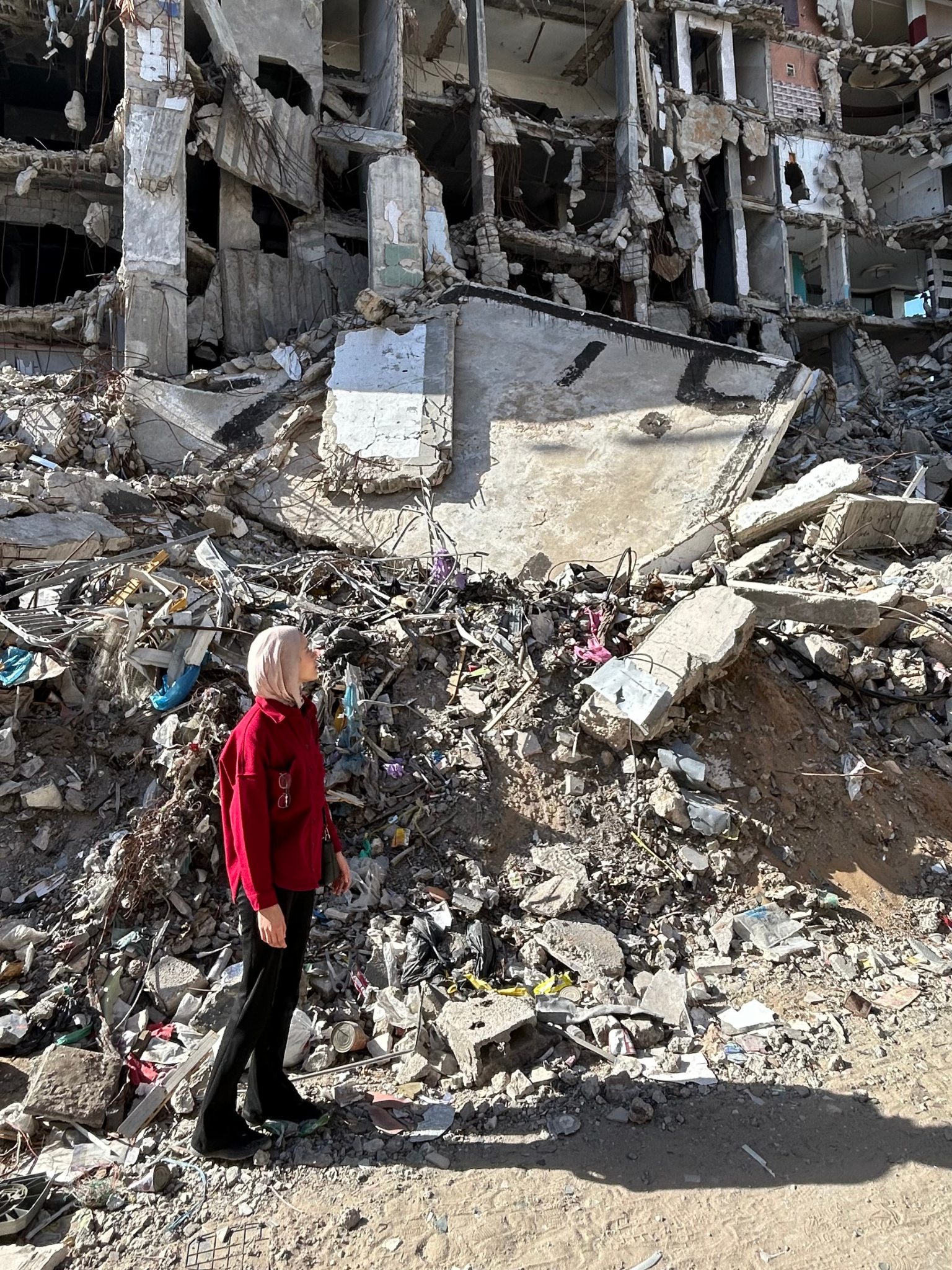
More than 80 per cent of buildings in Gaza have been destroyed
During the war, Yara worked as a project coordinator for AISHA – a non-profit giving psychological support to women and girls – as well as with another organisation that provides hot meals to those in need.
“You have to be productive,” she adds. “If you’re not productive, you will just keep thinking about how miserable life is. You will look around you, still thinking about your home, still thinking about the people we have lost. So you just keep yourself busy.”
During the two-month ceasefire at the start of this year, Yara and her family did manage to revisit their home.
“It was not in the perfect condition at all”, she says, picking up her phone and showing me a picture of her looking out from her bedroom.
In it, she is holding a broken strip of metal from the window, which they tried to repair. The landscape beyond shows a neighbouring tower still standing, the rest of it piled in rubble below.
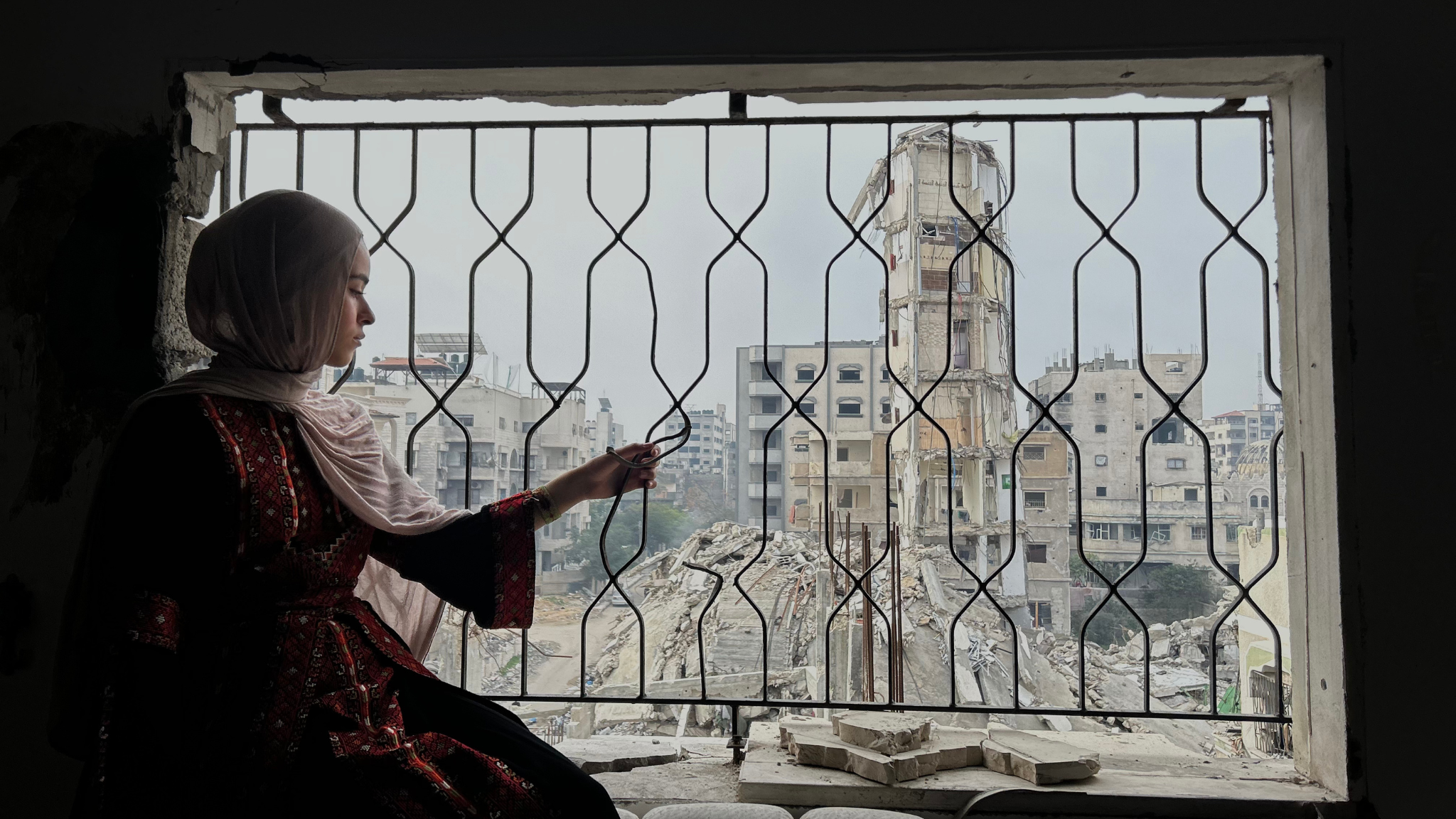
Yara looking out from her bedroom in Gaza
For the past few months, the Gaza40+ campaign has been advocating for UK university offer holders to be safely evacuated from the country, and urging that biometric tests be conducted promptly to prevent delays in student visas.
In September, the government approved arrangements for those on fully funded scholarships to carry out these checks in another country, which led to 34 students being successfully evacuated. However, the student visa requirements remain in place, meaning several offer holders are still trapped in Gaza.
Abtisam Mohammed, MP for Sheffield Central, raised Yara’s plight in the House of Commons, something which made her “feel seen”.
“That moment when I saw the video, I felt so hopeful that I’m getting closer,” she says. The pair were able to meet in person a fortnight ago, following her arrival.
On the day of her journey to the visa centre in Amman, the student left her family and boarded the bus as the first of two evacuated cohorts. It was an overwhelming morning, but she wasn’t tearful.
“It’s never a goodbye,” she reflects. “I did not cry because I believe I’m going back. And with the whole knowledge and skills I’m gaining here, I’m going to help my community back in Gaza to rebuild.”
The evacuees arrived at Heathrow airport on the evening of 22nd September, where Yara was greeted to the UK for the first time by a member of university staff and another Gazan student.
It was nighttime when they arrived in Sheffield. “It was freezing!” she laughs. “I mean, it was summer in Palestine and Amman was a bit cold, but now in Sheffield it’s freezing.”
I point out that, thankfully, she now has a large padded coat that looks suitable enough for sub-zero temperatures. “Everyone told me that you have to get a coat. And I’m now also just looking for good boots. Because everything is hills and everything feels like climbing a mountain. But I’m getting used to it day by day.”
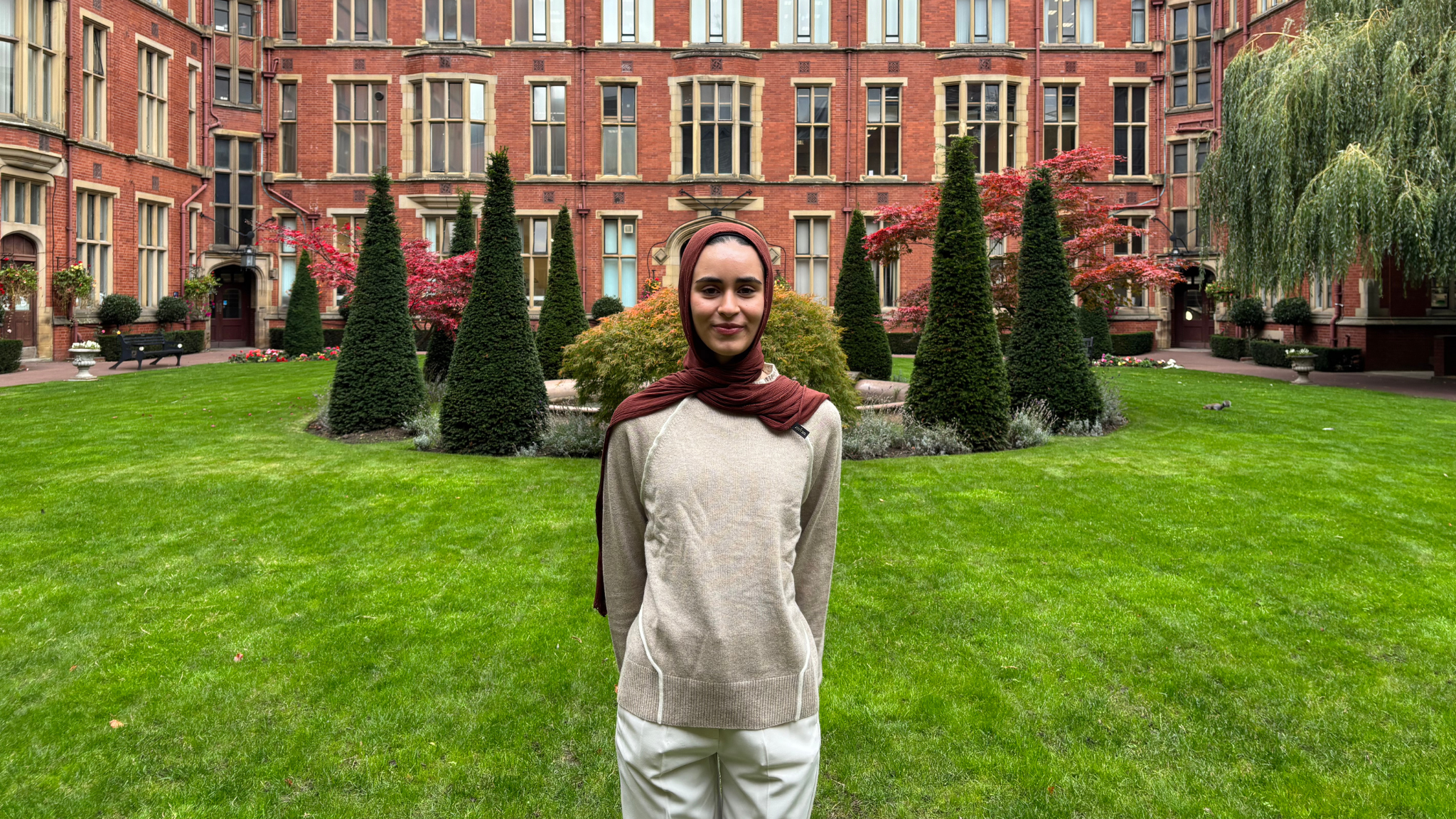
Yara in Firth Court
Beyond studies, she is looking forward to exploring the Peak District, trying out some sports for the first time, and seeing snow in the winter: “I’ve seen a lot of cartoons when they play with the snow and they do a snowman. I really want to do that.”
After her Master’s, Yara aims to use her knowledge in international law and her interest in advocating for women in armed conflict as part of post-war efforts.
“I think every student coming from Gaza has big dreams of rebuilding our community,” she says. “It needs a collective effort to rebuild it, and that is our responsibility.
“We have the privilege of being here, studying in universities – and with the privilege comes huge responsibility to work together to rebuild our community that now needs us the most.”
She also hopes more universities in the UK will open up spaces for Gazan students to study here.
At one point her phone rings. “It’s my best friend!” she beams. “She’s calling… She keeps checking on me.” Support she has been receiving from people back in both Gaza and here in the UK is a source of gratitude for the student: “A lot of people have been supporting me and making me feel home.”
At least 68,229 Palestinians have been killed since the Hamas-led attack on October 7th 2023, which killed around 1,200 people and took 251 others as hostages. A famine in Gaza was officially declared in August. In the UK, many of us have seen the news coverage and heard the stories from people living under Israeli bombardment. But is there anything else the world should know?
“I think that the world should know that Gazans are not numbers. Every one of us is a story and we’re not numbers in the media. We’re not just two and half million. We feel, we love life, we dream. Every one of us dream,” Yara says.
“We’re like anyone in the world. We cry, we get sad. We’re not superheroes that can’t hear all this struggle.
“It’s people that live, that get hurt, that suffer all these losses that are not normal for them. And it should never be normal.”



